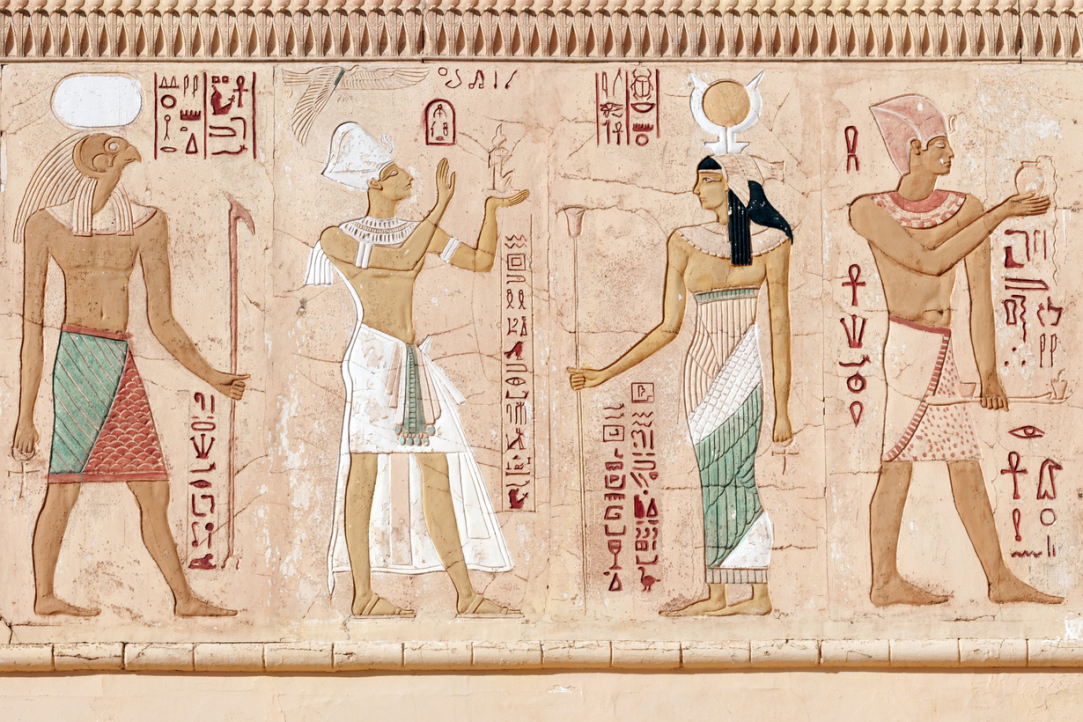Ancient Egyptians Were Less Afraid of Death Than Commonly Believed

Ekaterina Alexandrova, Academic Supervisor of the Egyptology programme at HSE University, has studied the funerary practices of ancient Egyptians based on religious texts and the works of Egyptologists from the 19th, 20th, and 21st centuries. Traditionally, it was believed that Egyptian religion was built solely on the fear of death. However, an analysis of texts reveals that ancient Egyptian beliefs were not merely reflections of a fear of death, but a complex system aimed at preserving order and stability both in life and the afterlife. The study has been published in the journal Shagi/Steps.
Historically, European and British scholars of the 19th–20th centuries often reduced Egyptian religion to a cult of death and afterlife practices. For instance, the works of renowned archaeologist and Egyptologist Wallis Budge portrayed ancient Egyptian culture as ‘mystical’ and ‘other,’ emphasising an obsession with death compared to Western civilisations. This approach, aligned with the social psychology theory known as Terror Management Theory (TMT), suggested that the construction of pyramids or the creation of the Book of the Dead were attempts to cope with the inevitability of death. These texts contained spells believed to protect the deceased in the afterlife and help them overcome dangers.
Ekaterina Alexandrova proposes complementing this approach to the analysis of Ancient Egyptian religion with Compensatory Control Theory (CCT). According to this theory, when lacking control over their lives, people seek external sources—such as gods and rulers—to maintain order. By analysing the Pyramid Texts and the Book of the Dead, the researcher questions whether the primary motivation behind elaborate rituals was fear of death or the desire to sustain order and control over the world. Textual analysis shows that these rituals reflect not only a fear of death but also efforts to preserve cosmic order, pointing to more complex motivations behind Egyptian religion.
In Egyptian culture, maintaining cosmic order, known as maat—a principle of harmony and stability—was of paramount importance. This order was constantly threatened by destructive forces called isfet.
According to Ekaterina Alexandrova, the driving force of ancient Egyptian religion was not so much the fear of death, but the necessity to maintain stability and order both on earth and in the afterlife. Rituals served as a means to restore cosmic harmony and emphasised the importance of controlling chaotic forces. This was the role of the pharaohs—divine rulers responsible for preserving harmony and order not only in life but also in the afterlife, where they were seen as guarantors of maat.
The researcher highlights the significance of individual control in Egyptian funerary practices. Tomb inscriptions often included legal rhetoric as warnings to those who might desecrate the tomb. These inscriptions expressed the deceased's hope for justice in the court of the Great God in the afterlife and relied on their own magical abilities to punish grave robbers. Egyptians feared death, but what they feared most was the ‘second death,’ which could occur under unfavourable circumstances in the afterlife. To combat this, Egyptians had cultural technologies, such as ‘heart amulets,’ which prevented the deceased’s heart from testifying against them in the judgment of Osiris.
The scholar emphasises that the fear of death was an individual experience. Means to overcome this fear were seen as a benefit initially available only to the pharaoh and the elite but achieved through the monumental efforts of the entire nation.
The theory of compensatory control allows us to view funerary practices across social classes, from commoners to rulers, as part of a unified system where social status was directly linked to responsibility and contributions to maintaining world order. The higher the social status, the greater the responsibility and, as Egyptians believed, the individual's contribution to sustaining cosmic order.
‘Ensuring the proper burial of a divine ruler is as essential as performing temple rituals. Royal funerary texts explicitly state that the pharaoh, 'awakened from the sleep of death,' restores maat to its place instead of isfet. This implies that concerns for the pharaoh's burial not only enhance his personal well-being in the afterlife but also serve the common good, as they contribute to maintaining the stability of cosmic order,’ concludes the author of the study.


